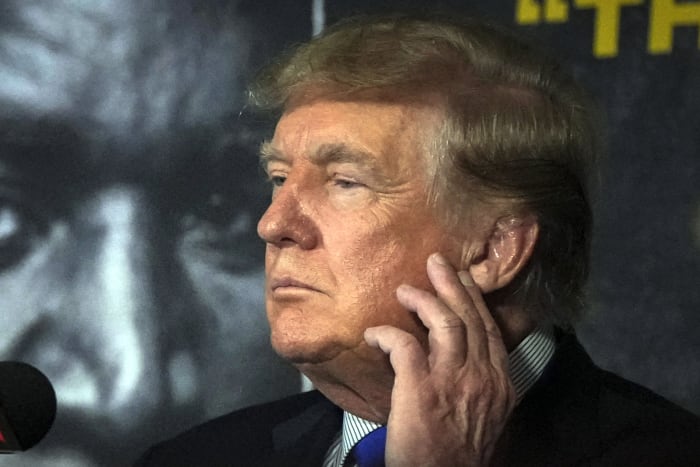
www.local10.com
What does 'plead the Fifth' mean? Will Donald Trump do it?
Former President Donald Trump, son Donald Trump Jr. and daughter Ivanka Trump are due soon to face questioning under oath in a civil investigation into their business practices.
Politics
NEW YORK – Former President Donald Trump is due Wednesday to face questioning under oath in New York's civil investigation into his business practices. But will he answer?
The ex-president's lawyer has indicated that he will advise Trump to stay mum and invoke the Fifth Amendment's protection against self-incrimination. It's a constitutional right that gets high-profile exposure in settings from Congress to TV crime shows, but there are nuances. Here's what it means — and doesn't — to “plead (or ‘take’) the Fifth."
WHAT IS ‘THE FIFTH’?
The Fifth Amendment to the U.S. Constitution establishes a number of rights related to legal proceedings, including that no one “shall be compelled in any criminal case to be a witness against himself.”
In the most direct sense, that means criminal defendants don't have to give damning testimony in their own cases. But it has come to apply in non-criminal contexts, too.
WHAT'S THE THINKING BEHIND IT?
“It reflects many of our fundamental values and most noble aspirations,” the Supreme Court wrote in 1964.
Among those ideals: preventing people from being tortured into confessing or being shoehorned into a “cruel trilemma of self-accusation, perjury or contempt” of court.
Many decades earlier, the court also questioned the reliability of confessions made under duress.
THE AMENDMENT SPECIFICALLY REFERS TO CRIMINAL CASES. HOW CAN IT APPLY TO A CIVIL INVESTIGATION?
Over time, the Fifth Amendment's protections have been understood to cover witnesses — not just defendants — in criminal and civil courts and other government settings. The Supreme Court has even held that Fifth Amendment rights protected the jobs of public employees who were fired after refusing to testify in investigations unless they got immunity from prosecution.
























































